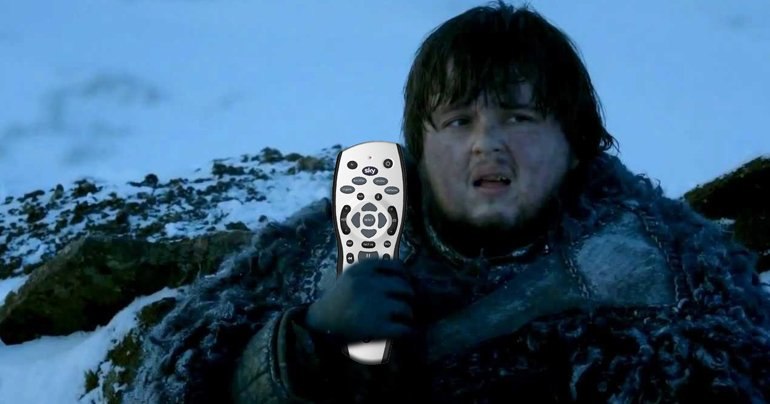With every episode of the show’s sixth season attracting over 5 million viewers to Sky Atlantic, Game of Thrones is indisputably Sky’s most successful and lucrative programme ever. Among our YouGov panel it remains the highest rated TV drama, and is ranked as the UK’s second favourite TV show, standing only behind The Great British Bake Off. Such popularity is all the more impressive when one takes into account the fact that many of our panellists don’t even have access to Sky channels.
Yet when one looks at Sky’s other TV offerings, the difference is stark. Only one other show Sky broadcasts, The Simpsons, made it into our panel’s Top 50 TV shows, at number 45. And combined with the fact that Game of Thrones has consistently been named as the most pirated TV show of all time, the benefits to Sky of broadcasting the show haven’t been as pronounced as they could have been.
While those fans of Game of Thrones who do have a Sky subscription do tend to have a significantly better perception of the company and its value for money than the UK population as a whole, even this group have expressed their doubts about keeping their subscriptions long term. 25% of them feel that they’ve got too many subscriptions for media, far higher than the national average of 13%. And once the show concludes in two seasons time, is there anything to stop Game of Thrones fans from deciding that, when it comes to their Sky subscription, their watch will be ending?
The perceived problem with Sky is that its service isn’t flexible enough. In a recent survey, we found that 75% of the Sky customers we interviewed would prefer a Sky package where they could choose which channels they paid for. Many pay for extra streaming services like Netflix or Amazon Prime on top of their Sky subscription, and this proportion is even higher among former customers of Sky. It’s clear that once Sky customers have grown accustomed to streaming media content, their Sky subscription looks less and less like good value for money.
The effects of Sky’s inflexibility are widespread, but are particularly prominent within the example of Game of Thrones, simply because the viewership is so large, and because the show’s relatively young audience is slightly more tech savvy than the nation as a whole. The Game of Thrones fans among our panel are significantly more likely than average to admit that they use free streaming sites to watch media content, and a whopping 46% would list streaming as one of their top online activities- that’s 15% above the national average. As the costs of Sky are perceived as increasingly prohibitive, the show’s fans have no scruples about finding cheaper sources, and it’s not hard to imagine that this behaviour will become ever more prevalent among TV audiences.
And why shouldn’t it? Both British and European courts have ruled that while producing pirate copies of films and TV shows remains illegal, streaming them temporarily is not a crime, and despite Sky’s best efforts, there seems little to stop more and more TV audiences from adopting this method of watching their favourite shows.
A few years ago a TV subscription seemed to be the only way to access thousands of TV shows and channels; Sky commanded a reputation as the best of these providers, and charged accordingly. But today’s consumers are more aware of the diverse ways to watch their favourite films and TV shows, and Sky’s premium reputation is now derived less from offering a better service than its competitors, and more from its increasingly premium price tag. The worsening reputation of BskyB is also partially due to a widespread dislike of majority shareholder Rupert Murdoch, as demonstrated by several YouGov surveys. In many of our surveys on Sky services, this Tywin Lannister of telly is frequently cited as the key reason why consumers will actively seek out a way to avoid paying for Sky content.
While Sky’s representatives maintain that the service still embodies value for money, it’s clear that the British public aren’t so sure. Compiling brand perception data from the last 18 months, we’ve found that the number of our YouGov panel claiming Sky to be good value for money has never exceeded the number who argue the opposite, and the margin between the two is only widening.
Sky needs to diversify its content, but this alone won’t lead to significant changes. The new HBO series Westworld, premiered on Sky Atlantic last week, demonstrates this point well. While the majority of viewers rated the show positively, the UK audience as yet remains relatively small. In the USA meanwhile, HBO is allowing non-subscribers to watch the show for free in an attempt to draw in a wider fan base than existing customers alone. Sky may look to combine similar, more innovative ways of attracting audiences with a concerted effort to make viewing more flexible, and cheaper. Without getting accustomed to the growing power of its competitors, and making changes to accommodate them, the broadcaster’s popularity is only set to dwindle further. Because whether Sky likes it or not, there just isn’t a convenient way to get rid of them all…








